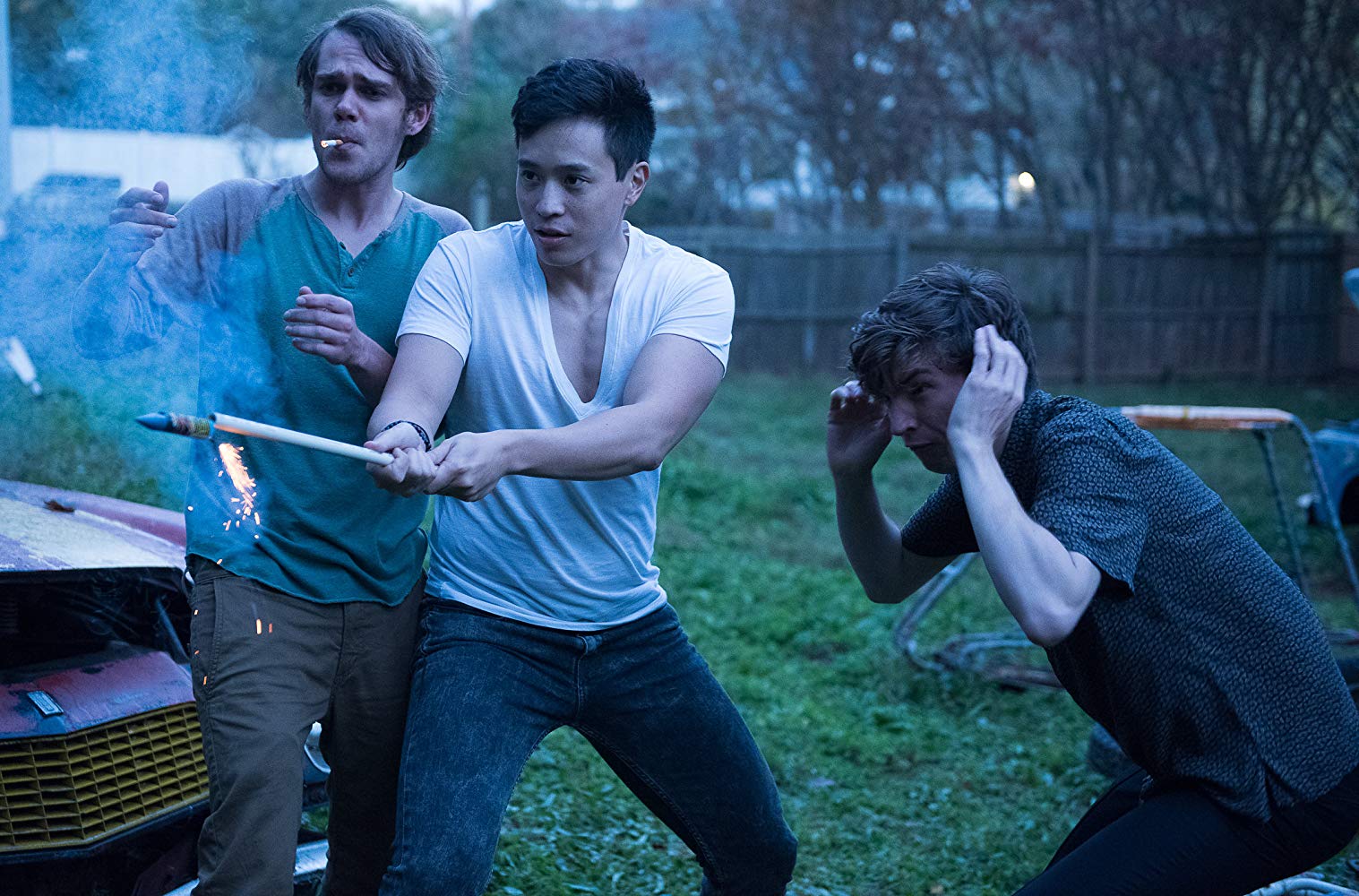Are you tired of Hollywood movies? Are you also tired of indie films from acclaimed artists, for some reason? Perhaps you’ve strolled past your local theater and wondered what Summer Night was. There’s a reason you probably haven’t heard of it: it’s the directorial debut of Joseph Cross, who starred in M. Night Shyamalan’s Wide Awake as a child, and the screenwriting debut of Jordan Jolliff, who was once Guy #8 in a little-known web series. It’s a humble little indie that’s looking for support—but does it deserve yours?
The film follows a group of friends over the course of a summer day (and night!) as they face an assortment of romantic conflicts, some of which crisscross into each other as the tensions grow. Cross and Jolliff have clearly taken a cue from Richard Linklater: the characters’ anthological journeys are reminiscent of Slacker, and the focus on relational dialogue feels like—well, a number of Linklater movies. Summer Night’s ensemble even includes Ellar Coltrane, the actor who we watched grow up in Linklater’s Boyhood. Unfortunately, Coltrane is the only weak link in the cast—he seemed to become less and less committed to his performance throughout Boyhood, and here, he delivers lines like he’s reading off of cue cards. A 12-year project can really take it out of you.
The other cast members carry no such burden. They range from up-and-comers to newcomers—the most well known actor here is probably Nickelodeon graduate Victoria Justice. She and her twelve co-stars provide a serving platter of appetizing performances: no one member of the ensemble stands out as the strongest, as nearly all of them give star-making performances. Filmmakers looking for talent could use Summer Night as a catalogue.
Cross’ direction is equally promising. He and cinematographer Michael FitzMaurice spice the move up with a number of lively flourishes, suggesting a confident control of the camera and a mind full of ideas. Cross’ style doesn’t augment the movie narratively or thematically, but that’s hardly a criticism of the first-time director—Summer Night’s visual elements may not be saying something, but they establish Cross as a director who could have something to say. His career is one worth following.
Summer Night is far from a perfect debut, though. The screenplay is the movie’s major weakness. The telltale signs of an incipient screenwriter abound, such as stilted dialogue and faux-deep musings, but nothing is as egregious as the movie’s treatment of women. The girls in the friend group fall into three categories: party girls, “cool girls”, and shy forest nymphs who look sexy while reading. Their characters are just as reductive and male-centered as the Manic Pixie Dream Girl. None of them really have character arcs, either—for the most part, they exist to help men realize that they show grow up and take responsibility for their lives. Some of them simply vanish from the movie after they’ve helped a boy have an epiphany. If your small-town ensemble is divided equally between men and women, perhaps you should consult a woman when writing your screenplay.
Summer Night’s male gaze is a nagging problem, but there are enough positives here to keep it from sinking the movie. The use of the lush Georgia setting is wonderful, as are the original songs that play throughout the movie’s midsection. The amount of potential displayed by both cast and crew is undeniable. Summer Night may not achieve greatness, but a number of the people involved could be destined for it.
★★★ (3/5)




